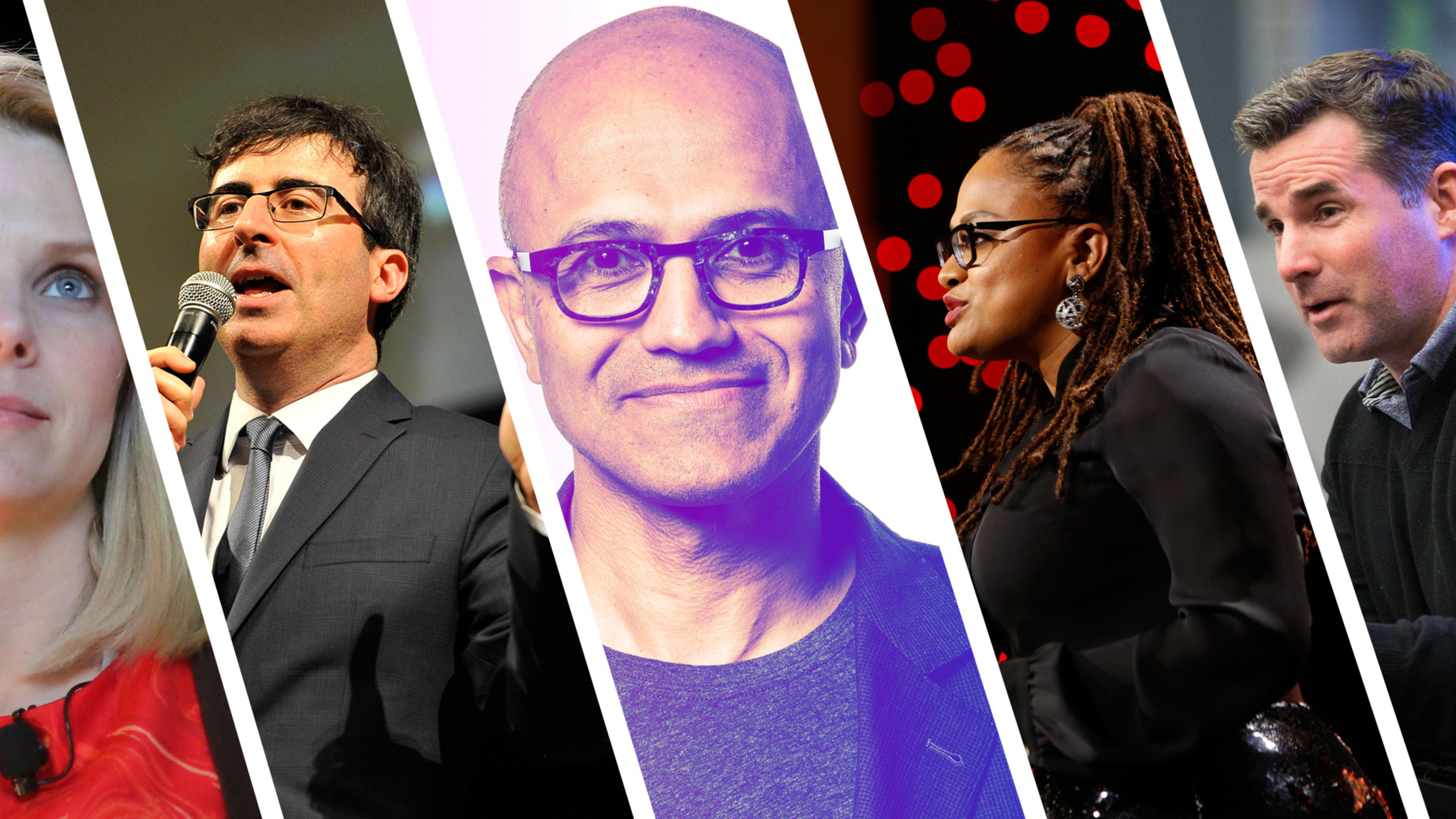On the heels of a roller-coaster 2016, we’ve discovered just how far from “normal” current events can be. We’ve learned how vulnerable even the largest technology firms can be to hackers, scammers, Russian trolls, and bands of Macedonian teens pushing fake news. We’ve borne witness to a presidential administration that has drawn lines in the sand on immigration, taxes, healthcare, and freedom of the press, while endorsing Alabama Senate hopeful Roy Moore who’s been accused of sexual misconduct with teenagers while brushing off allegations of the former National Security adviser’s collusion with Russia.
Related: The 10 Best And Worst Moments In Leadership 2016
But we’ve also witnessed how people triumphed despite adversity. Natural disasters have ravaged homes and businesses, yet prompted some entrepreneurs to rally to supplement and surpass government relief efforts. As in years past, several people and organizations have stood out as paragons of leadership, showing how to motivate and inspire, while others have served as role models for exactly what not to do.
Here’s a look back at some of the best and worst moments that stood out to us in 2017 (in no particular order).
The Best
Rose Marcario, CEO, Patagonia
Back in April, Patagonia’s CEO Rose Marcario made a strong statement against President Donald Trump and his administration.
Less than 24 hours after joining with our industry to celebrate the economic power of outdoor recreation, in a hypocritical move, the Trump administration took unprecedented steps that could result in the removal of protections for treasured public lands. We take this as a sign that Trump and his team prefer to cater to fossil fuel interests and state land grabs for unsustainable development, rather than preserve a vital part of our nation’s heritage for future generations by protecting federal lands owned by every citizen.
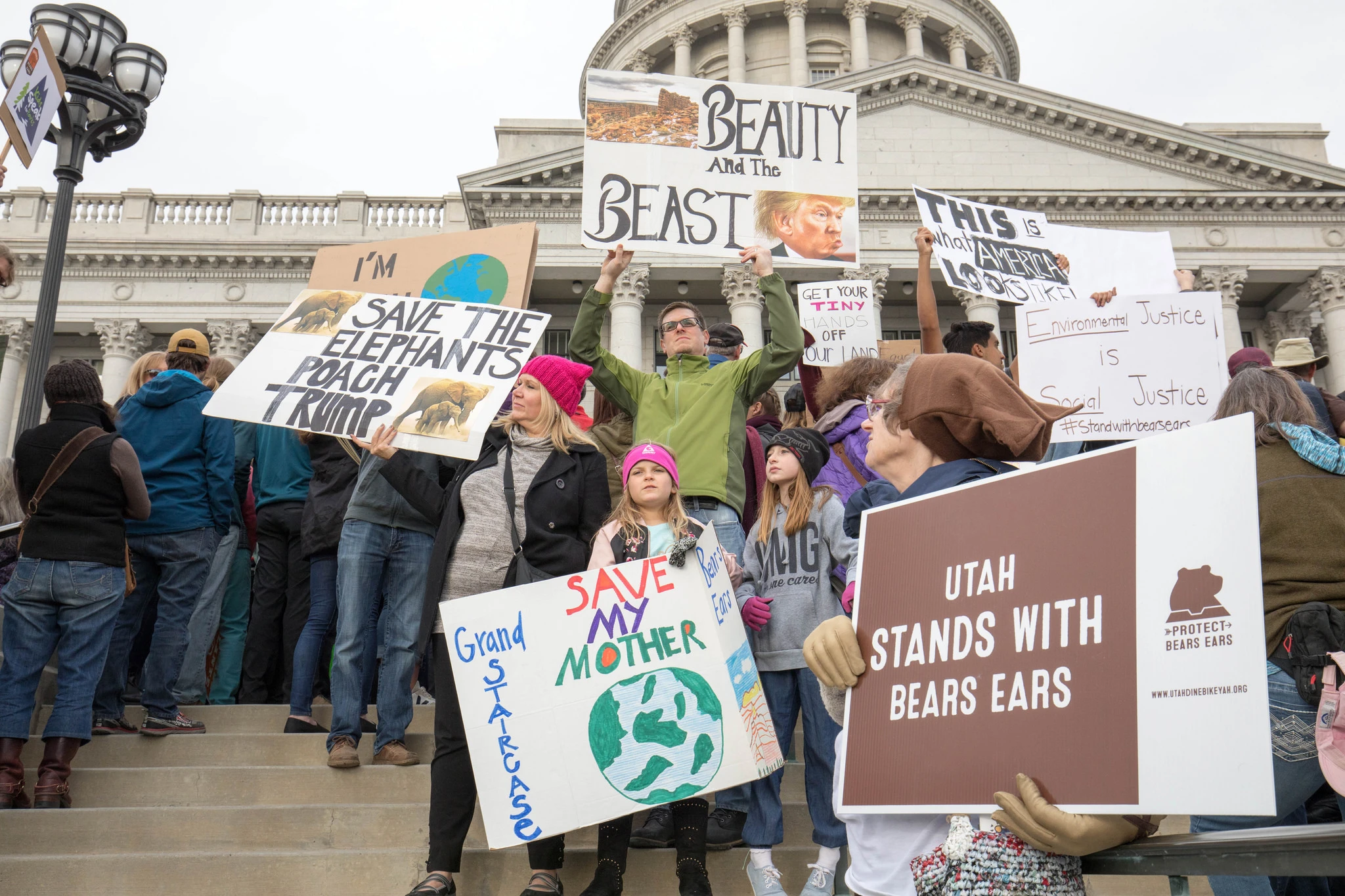
Marcario went on to urge citizens to make their voices heard by contacting Congress, and pledged to take legal action against the administration if there were continued threats to National Monuments.
After leading Patagonia’s political activism that includes brand marketing, lobbying government, supporting local environmental and indigenous groups, creating 360-films, and the company’s first-ever broadcast TV ad, Marcario is threatening to pursue legal action against the Trump administration to ensure the protection of the Bears Ears National Monument in Utah. This suit would complement another lawsuit filed by others to protect Utah’s Grand Staircase-Escalante National Monument.
Jose Andres, chef and restaurateur
Jose Andres is the Spanish chef who is most often credited for bringing the concept of small-plate dining to the U.S. The founder of more than a dozen restaurants was named one of Time magazine’s most influential people in 2012 and “outstanding chef” by the James Beard Foundation.
But Andres had a particularly brilliant moment this year: He led relief efforts in Puerto Rico after the devastation wrought by Hurricane Maria. Just five days after the storm passed, when the island residents were still largely without power and running water, Andres arrived to feed them. He put in place a network of kitchens, supply chains, and delivery services that eventually served more than 2.2 million meals. The New York Times reported that no other single agency (including the Red Cross, Salvation Army, or government org) fed more people fresh food in the aftermath of the storm.
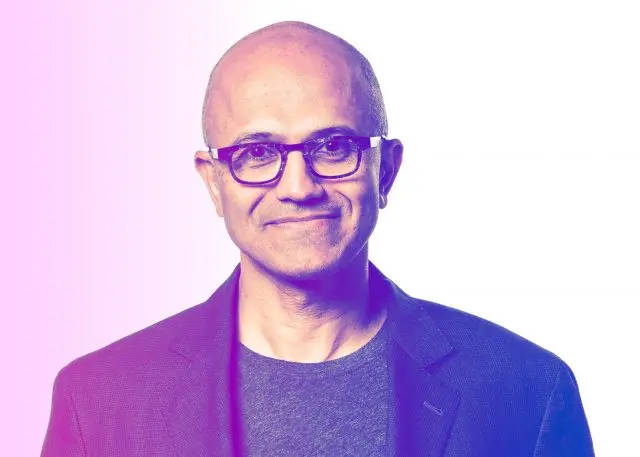
When Satya Nadella took over as CEO of Microsoft in 2014, the company had a reputation for its cutthroat corporate culture and failure to innovate past its competitors. Nadella responded by asking top brass to read Marshall Rosenberg’s Nonviolent Communication and modeled and encouraged empathy. And he’s been quick to point out the dark side of AI during a keynote at Microsoft’s Developer Conference, something Fast Company’s Harry McCracken says he tried and failed to envision coming from Facebook’s Mark Zuckerberg or Google’s Sundar Pichai.
In an era where emotional intelligence is just as valued as technical expertise, Nadella’s leadership bears out how such an approach can impact the bottom line as well. Microsoft’s share price has surpassed its previous highs during the dotcom bubble and generated more than $250 billion in market value in just three and a half years.
Cecile Richards, president, Planned Parenthood
It’s been a year of prolonged fighting for Cecile Richards, president of Planned Parenthood. The current administration and Republican-led Congress has tried to implement legislation that would have blocked Planned Parenthood’s Medicaid patients from being able to come in for services.
For Richards, the inspiration to keep fighting comes from calculating how many women Planned Parenthood serves daily. “We did the math early on, and every single day we could keep our doors open, approximately 8,118 people got care,” Richards said at the Fast Company Innovation Festival. Richards stood firm against spinning off Planned Parenthood’s most controversial service despite the threat of losing an estimated $350 million from the passage of the American Health Care Act that would repeal Obamacare.
“The minute we begin to edge back from that is the minute that they’ve won,” she said during an interview at the Aspen Ideas Festival.
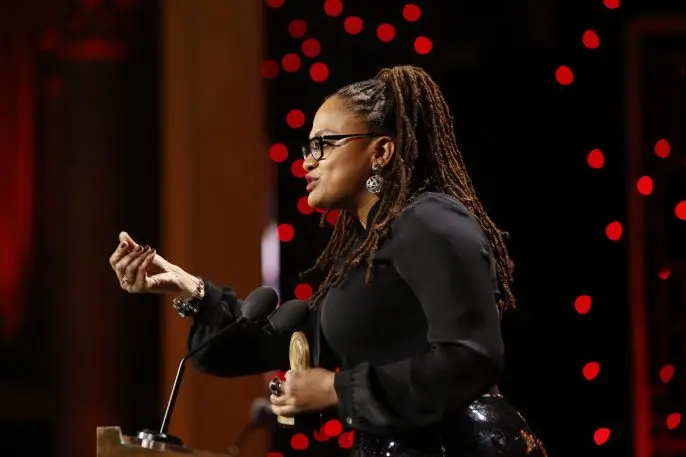
Ava DuVernay took a similar stance to prioritize principle over profit. The first black female director to helm a film with a $100 million budget, Disney’s A Wrinkle in Time, took to Twitter to say she was “standing with” journalists who were boycotting the production company’s screenings after they banned the Los Angeles Times for investigations into its business dealings.
Honorable Mentions
The organizers of the Women’s March on Washington for peacefully bringing together nearly 1 million participants in D.C. and spurring over 600 “sister marches” in cities around the world in support of human rights.
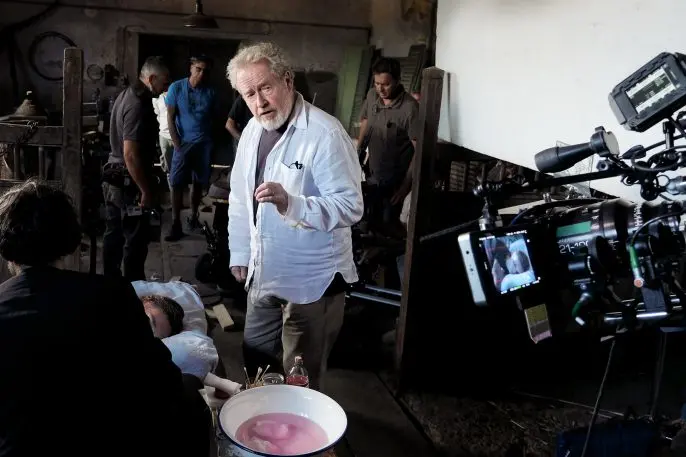
Maxine Waters for “reclaiming her time” by redirecting Treasury Secretary Steven Mnuchin back to the issue and sparking a movement for women (particularly women of color) with the Women’s Convention, and Elizabeth Warren for igniting similarly inspired resistance (“nevertheless, she persisted“) for refusing to be silenced by Senate Majority Leader Mitch McConnell during her criticism of attorney general nominee Senator Jeff Sessions.
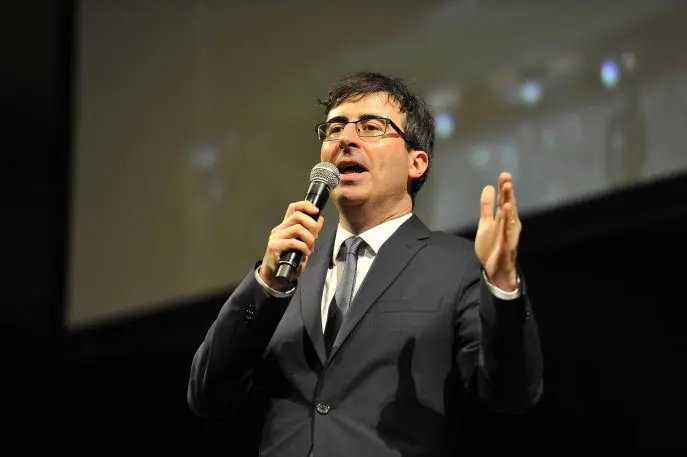
Related: John Oliver Was Right: It’s Time To Confront The Dustin Hoffmans In Your Life
As the Trump administration chips away at our civil liberities, millions of Americans have looked to the ACLU to fight for them. The 97-year-old nonprofit had a detailed plan of attack for Trump’s presidency, thanks to executive director Anthony Romero’s leadership.
The Worst
Richard Smith, former CEO of Equifax
CEO Richard (Rick) Smith walked away from one of the largest data breaches on record a rich man. Although he resigned, Smith is taking a cool $90 million into retirement. That adds up to a little less than a dollar for each of the 145.5 million customers whose personal information was stolen. He offered an apology (and free credit monitoring for a year!) but ultimately passed the buck to his employee. “The human error was [that] the individual who was responsible for communicating in the organization to apply the patch did not,” said Smith.
Marissa Mayer, former CEO of Yahoo

John Kapoor, founder, Insys Therapeutics
The billionaire founder of Insys Therapeutics Inc. John Kapoor resigned from the company’s board of directors and was arrested on charges that he was part of a bribery and racketeering scheme to get doctors to prescribe a very expensive fentanyl-based cancer pain drug and get insurance companies to pay for it. Kapoor and his executives were responsible for further fueling the opioid crisis that claims an estimated 175 lives each day.
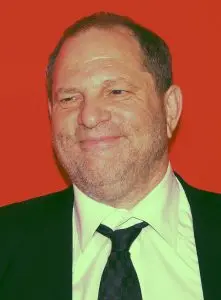
When an explosive expose was published against the Hollywood mogul alleging the sexual assault and harassment of eight women, Weinstein initially denied it and then condoned his own behavior as rooted in an era with different cultural mores. Many more women came forward, spurring the #metoo campaign that shone the light on other sexual predators. Weinstein’s production company went on the chopping block and left projects it was slated to complete and the hundreds of people who worked on them in limbo.
Mark Zuckerberg, CEO, Facebook
It’s not easy being at the helm of a behemoth social media platform, but it helps to take responsibility for what the beast has wrought. Zuckerberg failed to show up in person on several occasions that demanded his leadership. Most notably, he sent his avatar to hurricane-ravaged Puerto Rico, which was widely seen as tone deaf. He dealt with the failure to curb ads that contained scams and malware by writing a Facebook update.
Zuckerberg also failed to personally appear to testify in front of Congress for Russian infiltration of the platform to swing the election, and yet again penned a “serious” statement on Facebook to detail how much the company will invest in security going forward. Dealing with the severity of each of these events by staying behind the screen undermines his leadership and marginalizes issues that have widespread repercussions on Facebook’s users, and more broadly, the U.S. government.
Dishonorable Mentions
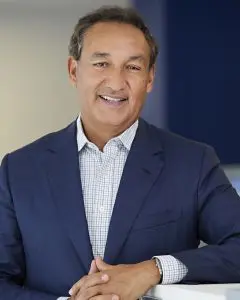
Former Uber CEO Travis Kalanick for hanging on to the top spot, long after it was clear that his leadership led the company into repeated scandals around sexual harassment, discrimination, obstruction of regulatory enforcement, and privacy violations. And he’s still hoping to stage a comeback à la Steve Jobs.
Sexual harassers from Matt Lauer and Kevin Spacey to Louis C.K. for not only wielding their power over subordinates to extract their own sexual satisfaction but for largely falling short of admitting guilt and asking for forgiveness in a productive and constructive way.
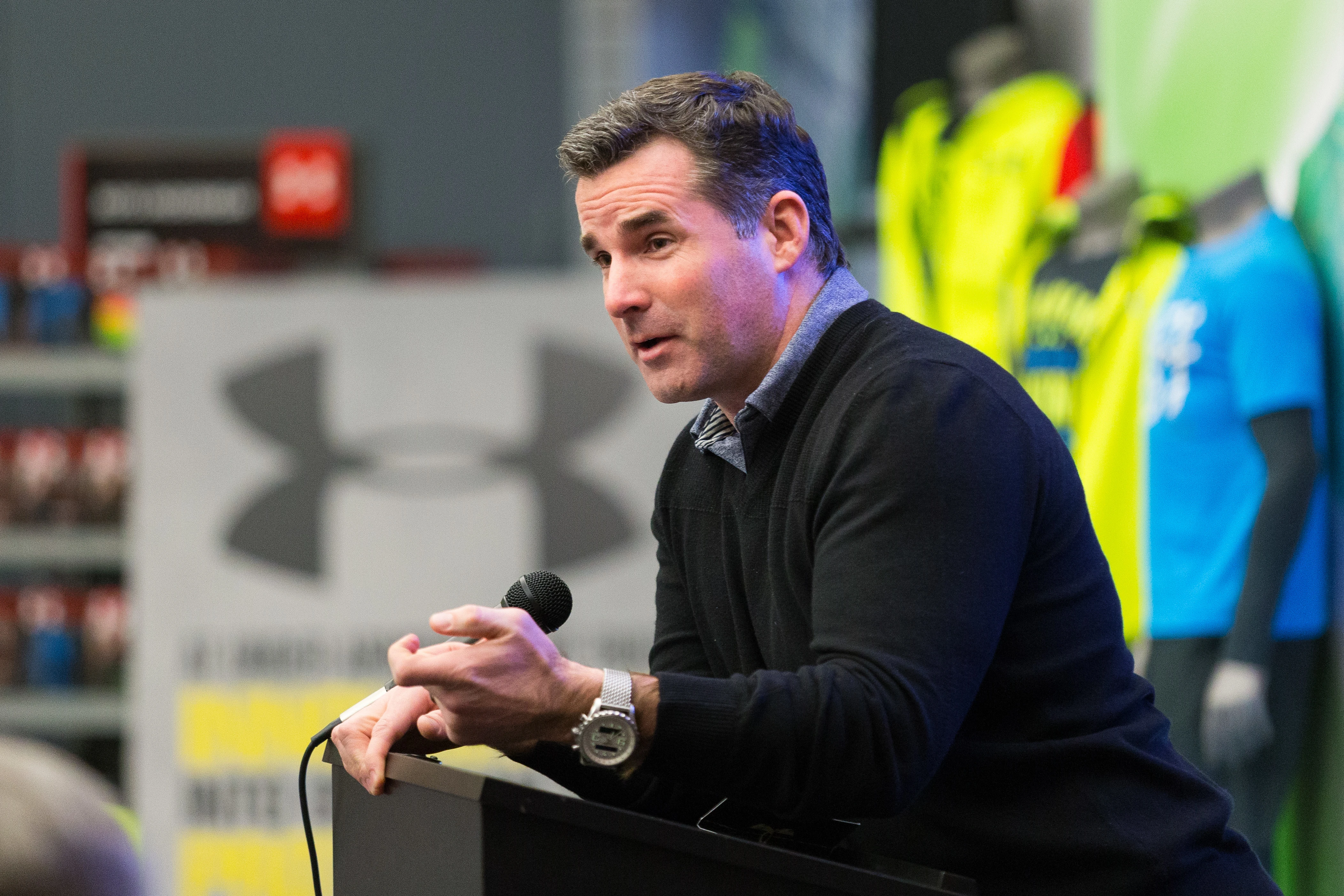
Hall of Shame – The Trump Administration
Where to begin. The past year has been packed with controversy from the White House essentially starting from the beginning when U.S. Counselor to the President Kellyanne Conway defended the size of the crowd at the inauguration by citing “alternative facts.” It continued through a series of measures that included (but not limited to):
- Pushing the Muslim travel ban
- Making a series of appointees like Betsy DeVos and FCC chairman Ajit Pai
- Revoking the Fair Pay and Safe Workplaces act
- Rescinding the Deferred Action for Childhood Arrivals (DACA) program
- Trying to push through a ban on transgender individuals in the military
- Passing a $3 billion tax break to Foxconn to locate a plant in Wisconsin that the state’s residents will have to shoulder with their tax dollars
- Threatening to pull FEMA out early from relief efforts in Puerto Rico
- Failing to stabilize insurance markets resulting in more Americans without healthcare
- Attempting to roll back women’s health coverage and access by dismantling the Affordable Care Act
- Threatening to cut the Community Development Financial Institutions (CDFI) Fund, which awards loans to institutions in disadvantaged areas
- Passing a tax code that mostly benefits the rich
As for leadership, a vestige of Donald Trump’s reality show remained as the president said “you’re fired” to a number of staffers including several communications directors, Steve Bannon, national security advisor Michael Flynn, FBI director James Comey, and others. For a White House that’s all about getting people jobs, several top administration positions and hundreds of lower level roles remain unfilled.
The president himself has led by a very poor example all year (often with misspelled tweets) by insulting heads of state, women in all industries, and the media, calling white supremacists “very fine people,” and endorsing accused pedophile Roy Moore.
CORRECTION: A previous version of this article referred to the Trump administration’s attempt at legislation as a measure that would defund Planned Parenthood. The organization is not a direct recipient of federal funding.
Recognize your brand’s excellence by applying to this year’s Brands That Matter Awards before the early-rate deadline, May 3.
